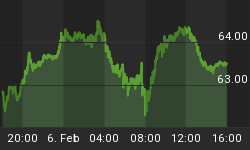PEW Social Trends research shows a Record 21.6 Million Young Adults Live in Their Parents' Home
Here are some clips from the fascinating PEW study.

In 2012, 36% of the nation's young adults ages 18 to 31 the so-called Millennial generation -- were living in their parents' home, according to a new Pew Research Center analysis of U.S. Census Bureau data. This is the highest share in at least four decades and represents a slow but steady increase over the 32% of their same-aged counterparts who were living at home prior to the Great Recession in 2007 and the 34% doing so when it officially ended in 2009.
A record total of 21.6 million Millennials lived in their parents' home in 2012, up from 18.5 million of their same aged counterparts in 2007. Of these, at least a third and perhaps as many as half are college students.
The steady rise in the share of young adults who live in their parents' home appears to be driven by a combination of economic, educational and cultural factors. Among them:
- Declining employment: In 2012, 63% of 18- to 31-year-olds had jobs, down from the 70% of their same-aged counterparts who had jobs in 2007. In 2012, unemployed Millennials were much more likely than employed Millennials to be living with their parents (45% versus 29%).
- Rising college enrollment: In March 2012, 39% of 18- to 24-year-olds were enrolled in college, up from 35% in March 2007. Among 18 to 24 year olds, those enrolled in college were much more likely than those not in college to be living at home - 66% versus 50%.
- Declining marriage: In 2012 just 25% of Millennials were married, down from the 30% of 18- to 31-year-olds who were married in 2007.
Percent of Married Millennial Declines

Long-Term Changes in Young Adult Living Arrangements

Household Formation

Married Residing in Own Household Plummets

Since 1968, age at first marriage has increased by nearly six years for both men and women. Consequently, the share of young adults who are married and residing in their own household has plummeted since 1968. In 2012, only 23% of Millennials were married and residing on their own as household head or spouse, a precipitous decline compared with 1968 when 56% of 18- to 31-year-olds were married and on their own.
End PEW
Fed Policies Exacerbate Trend
Bernanke wants 2% inflation in a deflationary world. Wages have not kept up with inflation as Fed policies exacerbate the trends.
The result is apparent. Everyone pays the price, but especially Young adults who cannot afford to get married, and they certainly cannot afford a house.
The Fed wants home prices up to help out the banks, but what about the new household formation? And what about student loans and the ability to pay those loans back?
And think about how cheap money allows corporations to borrow money for next to nothing to buy technology to replace humans with hardware and software robots.
Trends noted by PEW and predicted in this corner at least six years ago are structural long-lasting trends.
Those expecting a huge pickup in inflation, a spike in US GDP, or a big boom in housing based on misguided perceptions of "pent-up housing demand", fail to understand how Fed boom-bust and bank-bailout policies preclude such outcomes.















